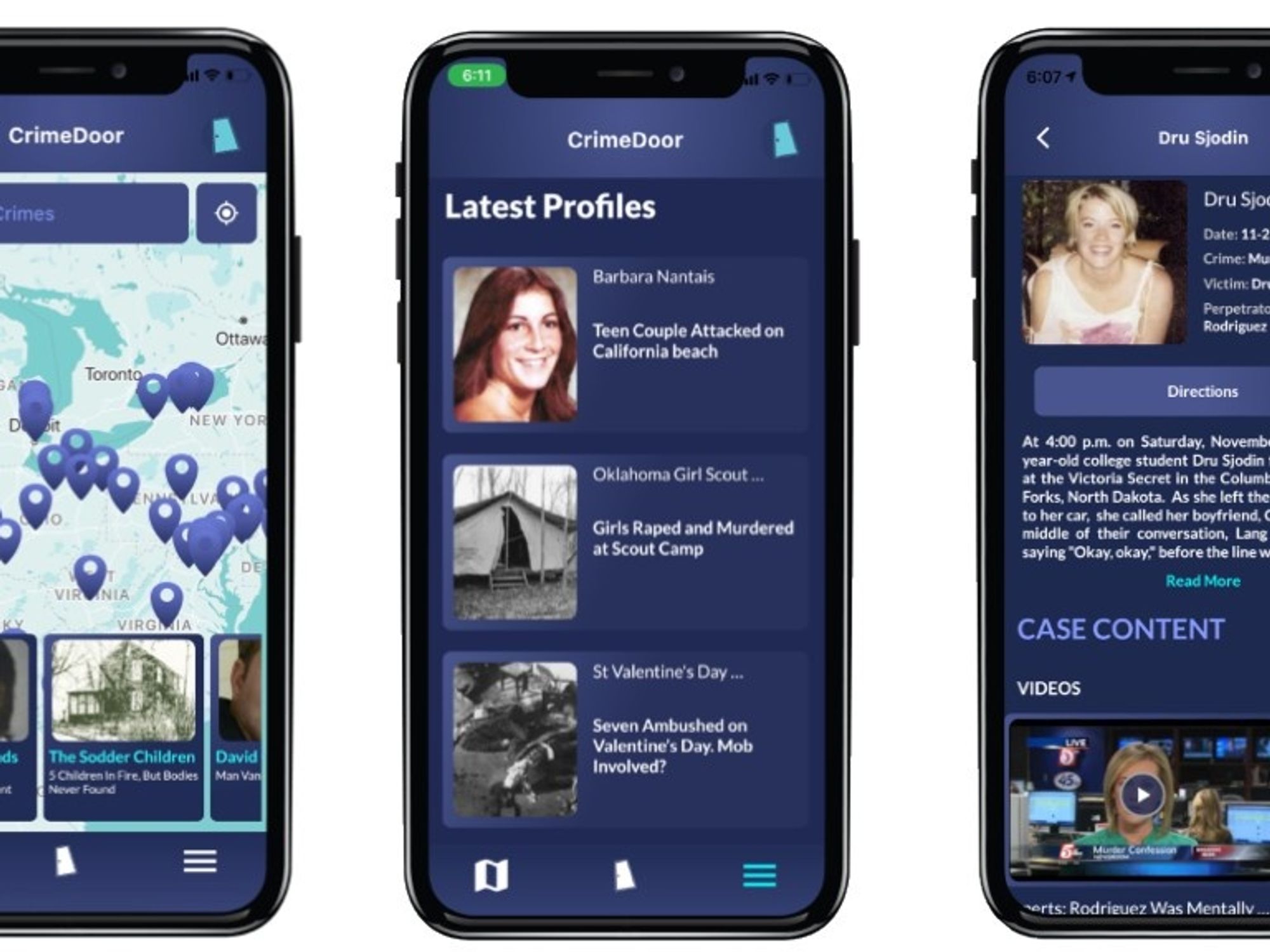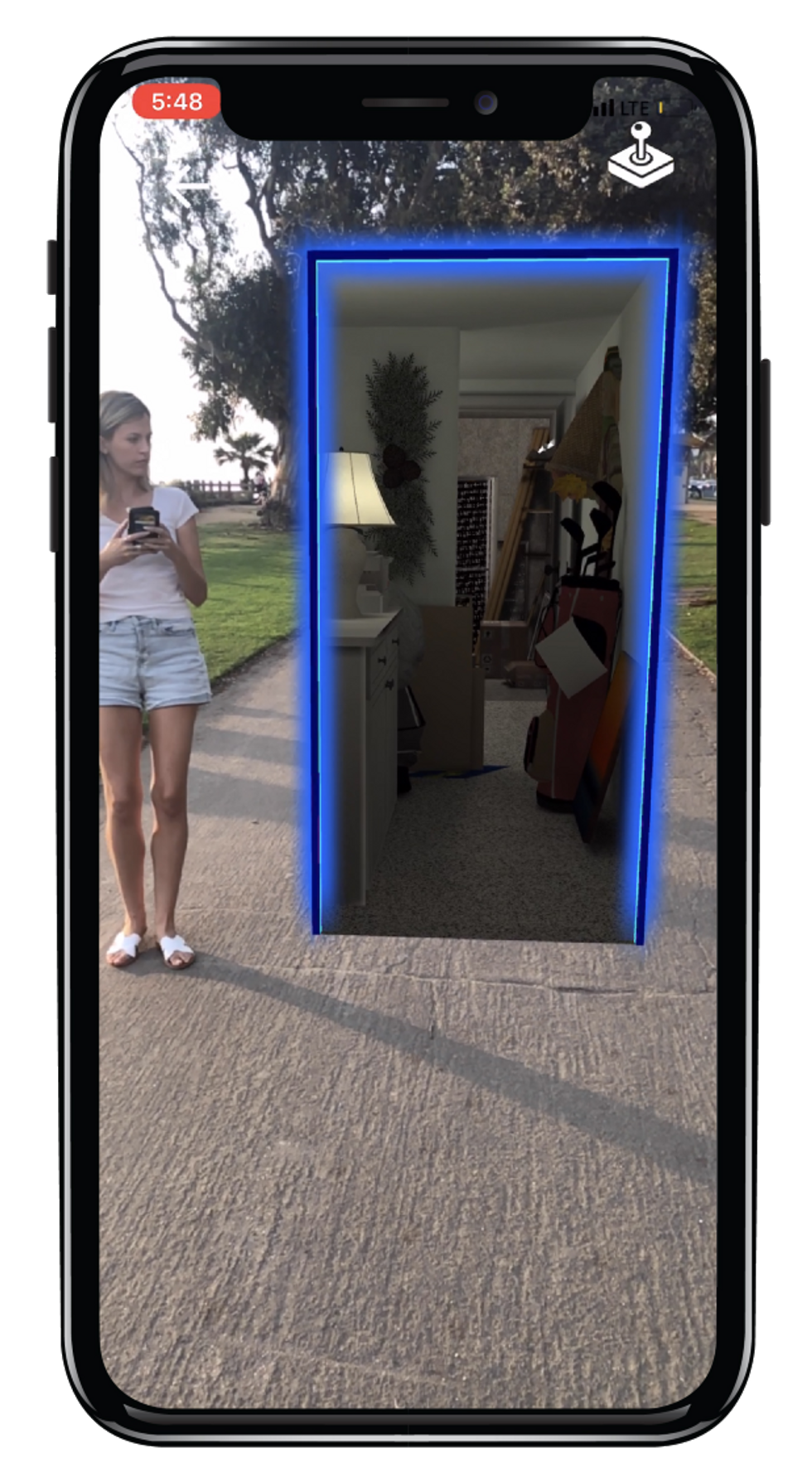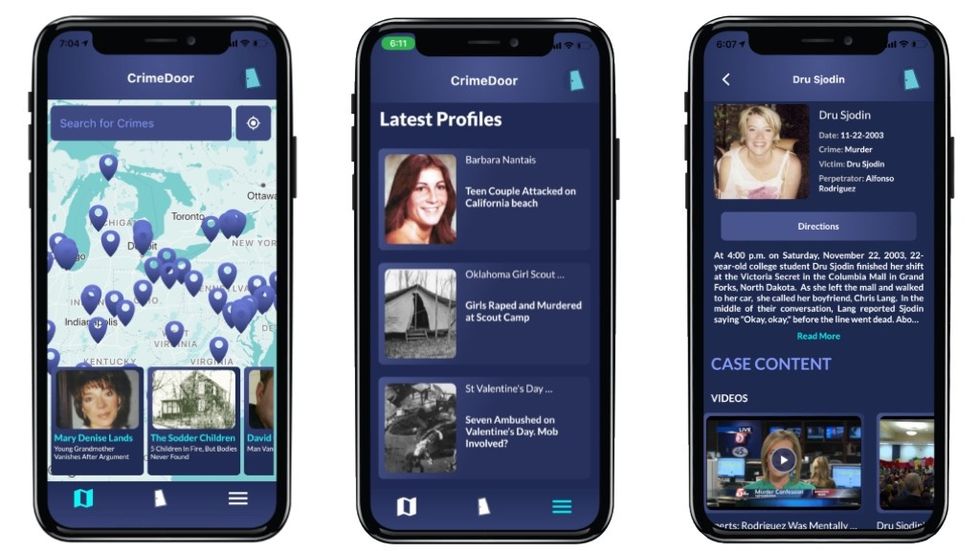This Augmented Reality App Aims to Solve Cold Cases — and Change How True Crime Stories Are Told
Sam primarily covers entertainment and media for dot.LA. Previously he was Marjorie Deane Fellow at The Economist, where he wrote for the business and finance sections of the print edition. He has also worked at the XPRIZE Foundation, U.S. Government Accountability Office, KCRW, and MLB Advanced Media (now Disney Streaming Services). He holds an MBA from UCLA Anderson, an MPP from UCLA Luskin and a BA in History from University of Michigan. Email him at samblake@dot.LA and find him on Twitter @hisamblake

- CrimeDoor, an immersive augmented reality app launched last week, is straddling the space between mystery entertainment and crowdsourced crime solving.
- The app was conceived by Neil Mandt, a longtime film and TV producer-turned-tech entrepreneur. A true crime enthusiast himself, Mandt said he saw an opportunity to merge the popular genre with immersive reality.
- The AR environments are constructed based on real crime scene photos, police reports and eyewitness accounts.
A new augmented reality app launched this week allows anybody to feel what it's like to explore a murder site as it appeared right after the crime occurred. They may even be able to help crack an unsolved crime.
The app opens onto a map that shows users historic crime scenes in their area, using GPS data. Each crime comes with a case file that includes a list of articles, documents, photos, audio clips and videos curated by crime journalists and researchers that is meant to provide an organized synopsis of "the 5 w's and h."

CrimeDoor was conceived by Neil Mandt, a longtime film and TV producer-turned-tech entrepreneur. A true crime enthusiast, Mandt said he saw an opportunity to merge the popular genre with immersive reality, an industry he's been increasingly involved in over the last few years and which he believes is "on the verge" of explosive growth.
The AR environments are constructed based on real crime scene photos, police reports and eyewitness accounts using CrimeDoor's patent-pending technology and Unity, a gaming engine.
Users can explore the crime scene using their mobile devices at the real, physical location when feasible, or with a joystick navigator from their own home. They'll see the scene as it was reconstructed, and can "pick up" evidence and enlarge it on their screens for closer inspection.
At launch, the app will contain about 500 cases and dozens of virtual doorways, Mandt said. Cases are free, but the app charges $1.99 to enter a door, or a monthly fee of $4.99.
Some of the cases are famous, such as the murder of OJ Simpson's former wife Nicole Brown Simpson or the shooting of John Lennon. But, Mandt said, most will not be as familiar.
One such case is that of Rebecca Zahau, a woman whose 2011 death in Coronado, California was ruled a suicide. The family contested the cause of death and filed a wrongful death lawsuit. Zahau's family has provided CrimeDoor with materials such as court documents and autopsy photos. A perpetrator was charged in a civil trial – not a criminal one – and Mandt said the family wants to bring the case back to light and give the public a chance "to look at it."
Mandt also noted he has heard great feedback from both user test groups and law enforcement agencies.
"The average detective has one hour on a crime scene and later a couple of photos and a matchstick and a hairy sock," Mandt said. "We have shown this to the FBI and law enforcement departments and without exception everyone compared it to DNA. The way DNA changed the game, this will do the same."
According to a company representative, a retired criminal investigator who helped to solve the infamous Golden State Killer case called CrimeDoor "a game changer for cold cases around the world."
UCLA law professor Eugene Volokh, who has studied and written about the intersection of AR/VR and law, told dot.LA that CrimeDoor should be wary of potential issues such as libel or needlessly upsetting a victim's family members. He emphasized, however, that such concerns are no different than those faced by any true crime storyteller, regardless of the medium.
"Generally, there are no legal or ethical problems raised by an AR or VR app as opposed to a documentary or a book," he said.

Mandt, who is self-financing the app, sees partnerships with media companies as a big opportunity for future growth. He said an organization with legacy crime footage, such as "60 Minutes," could partner with CrimeDoor to build out the AR crime portal, re-air the legacy footage on television, then direct viewers to the app and share a cut of the income.
"I'm interested in where the social web goes and how other AR leaders come to us and say here's how we can collaborate," he said. "The tech community, I'm excited to see what kind of creative things they can do with this. And Hollywood – producers will look at this and come to us."
Mandt also hinted at potential expansion by augmenting the user experience with sounds and technology that stimulates a user's sense of touch. He's also considering adding a marketplace to sell merchandise and implementing a credit-earning system to allow for add-on experiences, such as a ride-along in the OJ white Bronco highway chase.
Down the line, CrimeDoor may incorporate advertising, Mandt said. The app may also eventually incorporate premium content, such as access to movies, shows and books related to a given case.
---
Sam Blake primarily covers media and entertainment for dot.LA. Find him on Twitter @hisamblake and email him at samblake@dot.LA
- CrimeDoor VR App Features Notorious B.I.G. Murder Scene - dot.LA ›
- Topia Virtual Platform Raises $5 Million Seed Funding - dot.LA ›
- Adnan Syed's Release: CrimeDoor Gives AR Look At Crime Scene - dot.LA ›
- CrimeDoor's AR App Gets a Boost From Adnan Syed's Release - dot.LA ›
- True Crime Is Facing A Reckoning After 'Dahmer' - dot.LA ›
Sam primarily covers entertainment and media for dot.LA. Previously he was Marjorie Deane Fellow at The Economist, where he wrote for the business and finance sections of the print edition. He has also worked at the XPRIZE Foundation, U.S. Government Accountability Office, KCRW, and MLB Advanced Media (now Disney Streaming Services). He holds an MBA from UCLA Anderson, an MPP from UCLA Luskin and a BA in History from University of Michigan. Email him at samblake@dot.LA and find him on Twitter @hisamblake




 Image Source: Skyryse
Image Source: Skyryse
 Image Source: Northwood Space
Image Source: Northwood Space